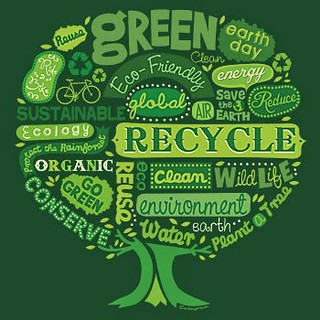
April is nationally recognized as “Earth Month,” initiating a celebration of our planet and encouraging action to preserve Earth. Earth Month was established in the 1970s, originally recognized due to a lack of environmental regulations. Although April is Earth Month, everyday we can participate in activities and small actions to benefit our communities and the planet as a whole. 
Near YOU.
Earth Day being on April 22nd, the month of April (Earth Month) is often filled with environmental events and activities. Several organizations in Philadelphia, (e.g. The Block Gives Back) set up clean-ups throughout the month of April. Historic Smithville Park (803 Smithville Rd, Eastampton Township, NJ) is hosting their annual “Earth Day Fair” on April 21st, in which multiple organizations and nonprofits have educational stands, alongside eco-friendly activities and locally sourced artist stands.
What Can YOU Do?
One of the most effective ways to conserve our environments is to reduce and reuse. We are told,“RECYCLE!”—not to disregard the benefits of recycling—but if we cut back on consumption, and use what is made, less waste is being made. The more products in demand, the more products produced, the more greenhouse gas emissions and the more landfill, the more harm to our planet. Reducing and reusing can be anywhere from reducing food waste to buying second hand. Below provides a list of small ways to lessen your amount of waste according to the EPA’s “Reducing and Reusing Basics” Article!
- Composting…The process of recycling organic matter into soil (e.g. leftover food, leaves). Ultimately, composting converts organic materials into nutritious soil, diverting waste from landfills. The less in landfills, the less processing and pollution.
- Buying Second Hand (Thrifting)…When shopping is necessary, purchasing second-hand future waste is reduced by limiting production demand. Second-hand products such as clothing prevent additional waste in landfills.
- Donation…Similar to purchasing second hand, donation diverts waste from landfill and allows the item to have a longer life span.
- Re-purpose… Tying into the ideology of reuse, to reduce waste, re-purposing everyday items can be from anywhere to sewing an old shirt into a tote bag to using old shoe leather for a wallet! Re-purposing items allow less consumption and more creativity/customization, despite the “labor” of reusing already bought items.
- Stop before you shop… Most importantly, take a moment to consider your personal consumption, by asking yourself, “Do I need this?”, “Will I use this?”, “Will this last?”, to avoid potential excess waste.
Reduction comes down to more than physical items; it can come down to a person’s carbon footprint (e.g. electricity and water).
- It’s been said many times to “turn off the water when you’re not using it” or “take quicker showers,” but keep in mind that the daily global average use of freshwater per person is estimated to be around 3800 liters! Additionally, water processing has quite the hefty carbon footprint, as much of transportation, heating, and purification is prior to the exhaustion of such a limited source.
- Most energy is sourced from fossil fuel burning, a known pollutant. To burn fossil fuels, a process of extraction occurs underground, during which underground water supplies are contaminated, making them unsuitable for animal/human consumption. Energy conservation reduces air and water pollution; a small list of ways to conserve energy are listed below.
- Within the alteration of Incandescent lights to LED lighting, electricity is conserved as LED lighting is energy efficient—using much less energy compared to other lights—and has a far longer life span as UK Energy Lighting expands on in the article “How Does LED Lighting Help the Environment.”
- On the more simple side, avoiding excess lighting and turning off lights when not in use is an easy and efficient method of conserving energy.
- In South Jersey summers, the weather tends to be on the hotter side, and as an immediate reaction, the AC is turned on. UN Environmental Programme, “Air conditioners fuel the climate crisis. Can nature help?” elaborates on how AC units emit heavy amounts of a potent greenhouse gas. Hydro-fluorocarbons refrigerants and use large sums of electricity. Although fans can be used as a substitute, they still consume substantial amounts of electricity, but in comparison to AC units, fans are more eco-conscious. Conscious usage of AC and/or switching to solar fans makes a big difference.

